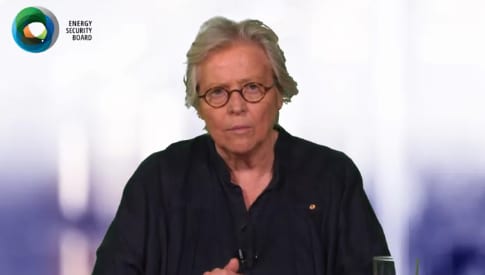Energy Security Board chair Kerrie Schott says that while the National Energy Guarantee is “officially dead”, parts of the proposed policy package live on through discussions with the states, and does not rule out its being in place by the end of 2019.
Schott’s comments reflect ongoing work among the states to put in place legislation for one of the two principal components, the reliability obligation, and lingering interest – including, potentially, from federal Labor – to revive the emissions obligation via a more ambitious target.
The NEG has been officially buried by the federal Coalition government after the overthrow of prime minister Malcolm Turnbull, the latest in a long line of political leaders to fall victim to climate and energy policy.
New prime minister Scott Morrison has said the government has no interest in any new emissions policy, or for developing any energy policy apart from expressing a desire to encourage “fair dinkum” power generation.
“The NEG is dead, officially,” Schott told the All Energy conference in Melbourne on Wednesday. “Unofficially it is not … most of it is still alive in some form or another.”
Schott said the reliability obligation is still needed and claimed there was widespread support for that to proceed. “It is not perfect … but it is something that everyone agreed on. It’s important that we can encourage an increase in renewables in the knowledge that the reliability of system can be met as we make the transition.”
Schott said the legislation for the reliability obligation is drafted and ready to go to South Australia, where under the rules of the National Electricity Market it will be legislated and then adopted by other states. She hopes it will be agreed by the end of the year.
However, she noted that because the federal government was “incapable of passing an (emissions target) that we were going to meet anyway – a 26 per cent cut in electricity sector emissions by 2030 – work on the emissions side of the equation had become “so poinous on emissions that no one wants to get into it.”
Schott said “we will have to wait to see what happens federally”, and because a number of states in election mode, with polls coming up in Victoria and NSW , “I hope that by the end of next year we have got an emissions target in place as well.”
Labor is keeping its options open on whether it will adopt aspects of the NEG as part of its target of reducing emissions by 45 per cent by 2030, if it gains power in the next federal poll that is due by May next year.
Certainly, business groups, industry and analysts are now turning to Labor in the hope of some policy being put in place after the federal Coalition made it clear it had no interest in developing any new energy and climate policy.
The government still insists that the economy-wide target of a 26-28 per cent reduction in emissions by 2030 will be “met at a canter” even though its own data shows emissions have risen for the fourth year in a row since the repeal of the carbon price, and is on a trajectory far away from where the Paris climate goals require.








